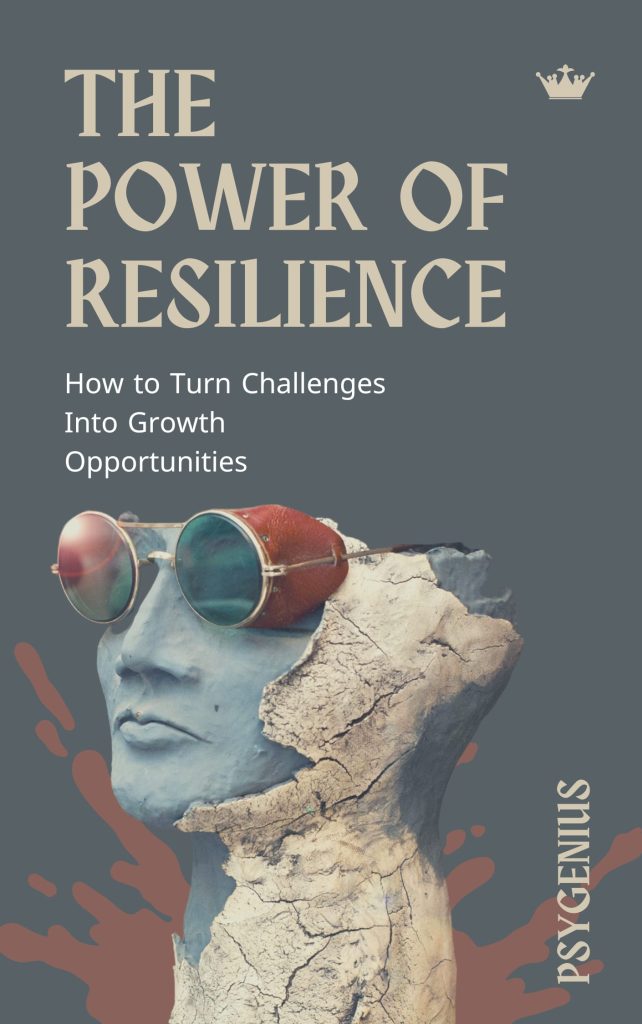The Importance of Resilience in Overcoming Challenges: Techniques to Develop a Growth Mindset

The Power of Resilience in Overcoming Life’s Challenges
Life presents a unique blend of challenges and opportunities that shape our experiences. In many parts of the world, including Nigeria, individuals frequently encounter obstacles that test their limits. In such contexts, the quality of resilience becomes paramount. This vital attribute allows individuals to recover from disappointments and setbacks, emerging not only unscathed but often stronger and wiser than before. Understanding how resilience works can significantly enhance emotional strength and foster a mindset geared towards growth.
Resilience is not an innate trait; it can be cultivated and perfected through practice and the adoption of effective strategies. For instance, the growth mindset—a term popularized by psychologist Carol Dweck—encourages individuals to view challenges as opportunities for learning rather than insurmountable barriers. By shifting perspective, people in Nigeria facing difficulties—be it economic hardship or personal tragedy—can extract valuable lessons that fuel personal and communal advancement.
- Understanding resilience can lead to greater emotional strength. Resilient individuals gain stronger emotional fortitude, which enables them to handle stress more effectively. Studies show that people who cultivate resilience are better equipped to manage anxiety and depression.
- Developing techniques for a growth mindset fosters adaptability. In a rapidly changing environment like Nigeria’s, adaptability is crucial. People who embrace flexibility in their strategies often find new avenues for success.
- Resilient individuals often experience higher levels of success. Those who bounce back from disappointments usually find themselves thriving in their personal and professional lives, showcasing how resilience can lead to enhanced outcomes.
So, how can one actively cultivate resilience? Here are effective techniques:
- Embrace Challenges: Setting small, achievable goals can help individuals recognize that challenges provide opportunities. For example, a young entrepreneur in Lagos might face funding issues. Instead of viewing this as a stopping point, they could view it as an opportunity to network and collaborate with fellow innovators.
- Maintain a Positive Outlook: Focusing on controllable aspects of a difficult situation can make a significant difference. Maintaining an optimistic view of potential outcomes can shift motivations and determination, especially in adversity.
- Build a Support Network: Surrounding oneself with supportive friends, family, or community members can be crucial. In Nigeria, communal ties are often highlighted; leveraging these connections can create a strong foundation of support during tough times.
As we explore the significance of resilience, it becomes evident that these techniques can deeply transform our relationship with adversity. This journey illuminates the potential for profound personal growth, offering individuals the tools to unlock their inner strength. By developing resilience, each of us can turn life’s difficulties into stepping stones towards remarkable achievements, not just in Nigeria but anywhere we call home. Embracing resilience is not merely a strategy for survival but a pathway to thriving in an unpredictable world.
YOU MAY ALSO LIKE: Read read another article

Cultivating Resilience: A Practical Approach
Resilience is the foundation upon which individuals build their capacity to navigate life’s trials. While some may perceive resilience as a rare quality possessed by a few, it is, in fact, a skill that can be cultivated through intentional practice. This notion is especially crucial for individuals in Nigeria, who often face a multitude of systemic and personal challenges, from economic instability to the struggle for basic necessities. By embracing resilience, not only can one bounce back from adversity, but they also pave a path towards personal growth and future success.
At the heart of resilience lies the concept of a growth mindset. Understanding and adopting this mindset can radically change how people approach challenges. Rather than viewing setbacks as failures, a growth mindset encourages individuals to see them as learning opportunities. This shift in perspective is instrumental for people striving to improve their circumstances in Nigeria’s dynamic economic landscape. For example, consider the case of a local artisan facing competition from imported goods. Instead of succumbing to despair, adopting a growth mindset would lead them to explore innovative techniques, enhance their product quality, and ultimately stand out in the marketplace.
There are concrete techniques that anyone can use to develop their resilience and foster a growth mindset:
- Embrace Lifelong Learning: In a world that is constantly evolving, the ability to learn and adapt is crucial. Engaging in continuous education—whether through formal schooling, community workshops, or self-study—enables individuals to equip themselves with the knowledge necessary to tackle challenges head-on.
- Practice Self-Compassion: During difficult times, it’s easy to be overly critical of oneself. Practicing self-compassion encourages a kinder inner dialogue. Instead of harshly judging oneself for missteps, reframing those moments as part of the learning process fosters resilience.
- Set Realistic Goals: Achievable goals can serve as stepping stones toward overcoming larger obstacles. For example, a small business owner might aim to increase their weekly sales by a specific percentage rather than focusing solely on a long-term vision of growth. Breaking larger ambitions into manageable components can ease feelings of overwhelm.
- Celebrate Small Wins: Acknowledging and celebrating even the smallest achievements can boost motivation and morale. This practice helps to create a positive feedback loop, reinforcing the behaviors that contribute to resilience.
As individuals begin to incorporate these techniques into their lives, they will inevitably encounter challenges that test their newfound resilience. Such experiences can catalyze profound personal transformations, illustrating how resilience is not merely a reaction to adversity but a proactive approach to life’s complexities.
Therefore, while the journey to becoming more resilient may seem daunting, the benefits are well worth the effort. In embracing resilience, individuals not only enhance their ability to confront challenges but also unlock their potential, ensuring they emerge not only intact but also empowered to thrive in a constantly changing environment.
The Importance of Resilience in Overcoming Challenges
Resilience is the relentless capability to bounce back from setbacks, adapt to change, and keep moving forward despite difficulties. Building resilience is crucial, especially in today’s fast-paced and ever-changing environment. It is the mental reservoir of strength that people draw on in times of trouble. The cultivation of a growth mindset plays a significant role in developing this resilience. A growth mindset is the belief that abilities and intelligence can be developed through dedication and hard work. This foundational concept encourages individuals to embrace challenges, persevere through obstacles, learn from criticism, and find inspiration in others’ success.
One effective technique to develop a growth mindset is through self-reflection. When faced with challenges, individuals can engage in self-reflection to assess their thoughts and reactions to adversity. This allows them to understand their initial responses and evaluate whether those responses are constructive or detrimental to their growth. Practicing positive affirmation is another powerful tool that helps reinforce one’s belief in their capabilities. By consistently introducing affirmations that emphasize their potential and resilience, individuals can shift their mindset from a fixed to a growth-oriented perspective, enhancing their ability to tackle life’s challenges.
Moreover, setting realistic goals can serve as a practical pathway to achieving success. By establishing short and long-term objectives, individuals create a roadmap that guides their efforts and helps them maintain focus, even when faced with setbacks. Each small achievement fortifies their resilience, reinforcing the understanding that challenges are merely stepping stones to greater success. As individuals reach these goals, their confidence builds, which in turn fuels their motivation to persist through future difficulties.
Additionally, cultivating a supportive environment is vital for enhancing one’s resilience. Surrounding oneself with encouraging friends, family, and mentors can provide individuals with the necessary support systems to navigate challenges effectively. This community can offer different perspectives, motivation, and constructive feedback, all of which are important in developing a robust resilience.
| Resilience Techniques | Benefits |
|---|---|
| Self-Reflection | Promotes self-awareness and constructive growth |
| Positive Affirmation | Encourages a belief in personal capabilities, fostering resilience |
| Goal Setting | Provides direction and boosts confidence through measurable achievements |
| Supportive Environment | Offers motivation and different perspectives to navigate challenges effectively |
SEE ALSO: Click here to read another article
Building a Supportive Environment
One crucial aspect of developing resilience and a growth mindset is the role of social connections and community support. In Nigeria, where communal living often plays a vital role in individual lives, fostering strong relationships can significantly enhance one’s ability to overcome challenges. The encouragement and support of family, friends, and colleagues can create a safety net, providing the emotional and practical resources needed to face difficulties.
Networking and Collaboration are key techniques for building resilience. Engaging with local business groups, community organizations, and online forums can provide access to valuable resources and opportunities for personal development. For instance, a young entrepreneur who connects with established business mentors can gain insights that might shorten their learning curve and enhance their chances of success. Such interactions not only provide practical knowledge but also instill a sense of belonging and shared purpose, which can further stimulate resilience.
In addition to networking, it is crucial to surround oneself with positive influences. This approach entails forming relationships with those who embody resilience and a growth mindset. Observing and learning from individuals who successfully navigate challenges can provide practical strategies and inspire a similar mindset. Consider, for example, a farmer coping with erratic weather patterns and fluctuating market prices. By collaborating with other resilient farmers, they can collectively share insights on adaptive farming techniques, thus turning their challenges into opportunities for innovation.
Mindfulness and Emotional Regulation
Another pivotal technique in cultivating resilience is the practice of mindfulness and emotional regulation. Mindfulness encourages individuals to remain present and aware of their thoughts and feelings without judgment. Research has shown that mindfulness practices, such as meditation, can reduce stress and improve emotional adaptability. For Nigerians facing daily environmental stresses, integrating mindfulness into their routines—perhaps through local mindfulness groups or at home—can enhance well-being and resilience.
Moreover, developing emotional regulation skills allows individuals to manage their reactions to adversity effectively. Techniques such as deep breathing, journaling, or engaging in physical activities can help mitigate anxiety and improve response time in tough situations. For example, a student facing academic pressure may adopt these emotional regulation strategies to remain focused and calm, turning potential despair into a focused action plan for improvement.
Cultivating a Forward-Looking Perspective
Resilience and a growth mindset are inherently tied to one’s ability to maintain a forward-looking perspective. Rather than dwelling on setbacks, individuals can train themselves to envision their future possibilities. This involves setting long-term aspirations that align with personal values and cultivating optimism about the outcomes of their efforts. In light of Nigeria’s entrepreneurial landscape, creating a vision for one’s business or career—backed by a concrete action plan—can sustain motivation even in the face of difficulties.
Additionally, visualizing success and practicing positive affirmations can help reinforce this forward-looking mindset. Those engaged with tech startups in Nigeria, for instance, might find that envisioning successful innovative applications can not only serve as motivation but also as a strategic guideline for navigating the inevitable challenges of launching and sustaining their ventures.
As resources become increasingly unpredictable, reinforcing resilience through a supportive environment, emotional mastery, and a future-focused perspective becomes vital for individuals committed to overcoming challenges and achieving their aspirations. With these techniques, Nigerians can empower themselves to face adversity head-on, emerging stronger and more capable than before.
YOU MAY ALSO LIKE: Read read another article
Conclusion
In a world filled with uncertainties and challenges, the significance of resilience cannot be overstated. Developing a growth mindset is not merely an advantageous trait; it is an essential component for navigating the complexities of life, particularly in an evolving society like Nigeria. As we have explored throughout this article, resilience is fortified through a multitude of techniques, from cultivating supportive relationships and networking to practicing mindfulness and emotional regulation.
Furthermore, embracing a forward-looking perspective not only fosters optimism but also lays the groundwork for sustained motivation amid adversity. By envisioning future possibilities and systematically working towards set goals, individuals equip themselves with a proactive approach to challenges. Nigeria’s rich communal culture offers an excellent backdrop for building these support systems, reinforcing the idea that no one has to face challenges alone.
As we stand at the brink of rapid change in various sectors—from technology to agriculture—embedding resilience into our personal and communal fabric equips us to meet these shifts with confidence. It invites exploration and ignites innovative thinking that is capable of turning obstacles into opportunities. Ultimately, by investing in our ability to adapt and grow, we not only enhance our personal well-being but also contribute to a more resilient and thriving community. The journey of developing a growth mindset is continuous, but the rewards—in terms of personal fulfillment and communal progress—are undeniably worthwhile.



